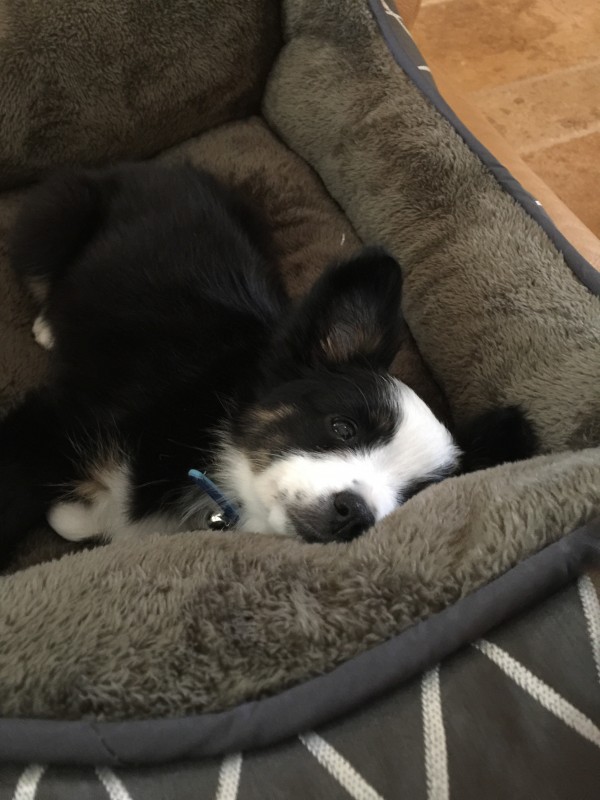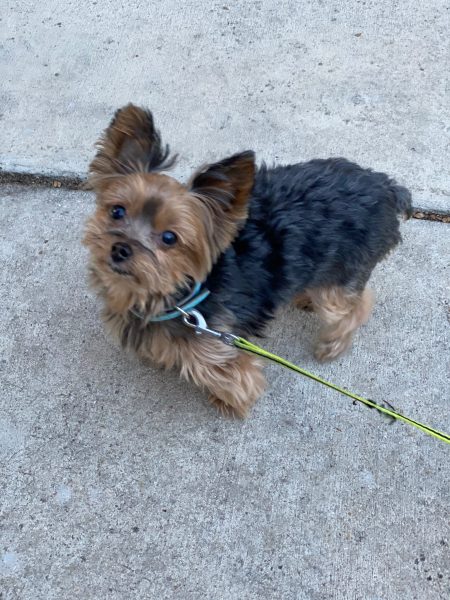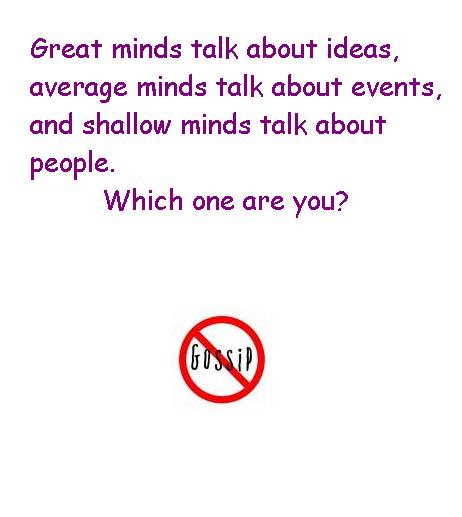With the new radio show coming, I’m looking for suggestions for what to call it. Ask Erik? Ask the Dead Dude? Erik’s Power Hour? I’m terrible with this kind of stuff. If you have an idea, leave it in the comment thread.
On another note, my son, Lukas, got a new dog. Actually, he’s on his second one. A couple of days ago, he went to the SPCA and adopted a doberman/terrier mix. She was 4 months old. She seemed so sedate and submissive, but in a day or two, she started acting aggressive towards my dog, Bella. She’d point, lower her head, let out a low, menacing growl and advance toward her with a snarl on her face. It would only take one bite to kill my little three-pounder, so back she went. Yesterday, he bought a cute little Aussie puppy, just ten weeks old. Her name is Scout, and she and Bella love each other! Welcome to the crazy Medhus family, little girl!
To give you a sampling of another one of our stellar CE mediums, here’s what Kim Babcock translated from Erik.
Me: Let’s talk about Thanksgiving. It’s basically about gratitude.
Erik: Yes, it is, and there are so many things I can talk about. Where do you want me to start? Or I can just start. Do you want to start with gratitude?
Me: Yeah, that’s fine.
Erik: Not just Thanksgiving, but holidays in general, people like to follow traditions, and they find comfort in them. What I really hope people can focus on is not taking things for granted.
Kim: This is where he gets all mushy, so if I start to cry, I’m sorry. He’s been really mushy all day.
Me: Aw.
Erik: You never know what someone is feeling inside, even if they have a smile on their face, even if they come to the table with you. You never know what they’re feeling, so don’t be afraid to listen to your heart. If your heart is telling you to reach out and strike up a different kind of conversation, go for it. Don’t take those moments for granted because you’re not guaranteed the next moment or night or day. Go out of your way to do things that solidify within yourself that you’re not taking things for granted. It’s such a common phrase, but it’s real and I mean it. Don’t take each conversation for granted, each moment, and of course the meal, but for me, it’s more about relationships. I also want you to set yourself free a little bit [over the holidays.] When families come together for the holiday season, set yourself free a little bit meaning share a little bit more. Talk to your family. Open up a little bit more. I encourage that openness. It’s funny, because Kim loves her family, but she sometimes gets this weird wall up and doesn’t open up as much as she’d like to.
Kim: I don’t know why.
Erik: Even in those times, let yourself be more vulnerable and share more because not only are you going to learn more about yourself, they’re going to learn more about you and the bond, the connection that you’re creating will strengthen and last longer in the long run.
Me: Okay.
Erik: When I talk about setting yourself free, I want to go off a little bit. Holidays mean tradition and rituals for some people, but I also don’t want people to feel obligated to do things because of society’s attachment on the idea.
Kim: Try to follow me here because he’s getting deep!
Erik: Sometimes families might be attached to an idea or a ritual to do something—families have all sorts of rituals and traditions, but if you become attached to those out of a sense of obligation, where’s the joy in that? Where’s the love in that? If you’re going to get attached to anything, make sure the attachment is in love and not obligation because when you begin to see things through that filter like, “I have my obligation goggles on,” there’s not joy or connection, it’s much harder to enjoy the experience. Just be mindful. Instead of saying, “Oh, I’m obligated. I have to do this family function,” be grateful that you have those opportunities because again, they’re not promised ever. I’m looking forward to Thanksgiving. I hope I see smiles on everybody’s faces!
Me: Oh, you will. What about those of us who have lost somebody and now there’s going to be that empty chair at the table? Any advice for them?
Erik: It’s hard, especially when it’s the first, going through those first holidays without that loved one. Just because time passes doesn’t always make it easier, but don’t let that loss become your holiday. If everybody gathers around a table or a tree, no matter what it is, it’s okay to reflect in love and remember in love, but don’t unpack and stay there, and don’t let those emotions carry on to every holiday because then it’s like this cloud that follows you. The joy won’t be like it used to be.
Me: So any tips on how to avoid doing that?
Erik: It’s hard because the joy ISN’T going to be like it used to be since you’ve gone through that loss. The first thing I want people to acknowledge is that we don’t have those deep, heavy emotions here, so we don’t want that for you, either. We don’t want you to trouble yourself and burden yourself with these lower emotions. We want to see you happier, so if it comes from anywhere, know that it’s what we want for you. We don’t want you to sit around and be sad and feel guilty for being happy and enjoying events even when we’re not there.
Me: Because they probably are.
Erik: There are a lot of things that people can do to get through the holidays without such sadness.
The dogs start barking.
Kim (Laughing): He’s distracted by the dogs.
Me: I know. God.
Kim: He’s walking around and talking, and he’s facing away so I can’t hear him. Hold on.
Me: He used to be a mumbler.
Kim: Yeah, that’s what he was doing, walking around and mumbling, and I couldn’t understand him, but he came back. So he’s talking about specific ways to get through the holidays with such heaviness.
Erik: Ah, Mom, this is a hard question. What I want to point out is—
Kim: Oh my gosh, no. If he starts crying, I can’t even.
Me: Oh, no.
Kim: Yeah, he’s very emotional so I have to try holding it together.
Me: Aw, it’s okay. You don’t have to.
Kim: He says…Gee whiz.
She fans her face and starts to cry.
Me (in a motherly tone): It’s okay, Kim. It’s all right, sweetie.
Erik: We’re not gone. It’s the way people reflect. They reflect on the idea that we’re gone. We’re gone in the physical, but we’re not gone. It’s a purer relationship; it’s a more divine connection, and that’s how I want people to see it. I want people to see that just because we’re gone in the flesh—
Kim starts to cry harder.
Me: It’s okay. Let it go. I cry all the time!
Kim: He’s been really mushy today.
Erik: Just because we’re gone in the flesh doesn’t mean we’re gone. This is a truer way for you to hear me. This is a truer way to hear your loved one. If you can’t hear them, that’s okay. Listen to your heart. What do you feel? When you’re sitting next to my empty chair, what do you feel? I don’t want people to reflect on the holiday with the filter of loss. There is no loss. I’m still here.
Me: So that’s the basic message. That’s the way to keep the cloud away, knowing that they’re sitting in that chair.
Erik: We’re still here; it’s just different. (Patting his chest) How do you feel, Mama?
Me: I feel fine. I know you’ll be there with me, so we’re good. I was going to talk more about gratitude. It’s kind of like an energy, and if you give people gratitude—and you don’t have to express it out loud—it is a thought energy that can affect their reality, that can affect them, right?
Erik: Yeah, it doesn’t even take words. It’s a wavelength. It’s its own entity or vibration, and when you—there are two ways you can look at this. When you step into it—
Kim (Laughing): Now he’s rapping. He’s making a song out of it.
I chuckle. Typical.
Erik: When you step into gratitude, first you’re going to feel more grateful for things that you have, the way things are, situations, people in your life. When you decide to give it, you don’t need words. You don’t even need actions. It’s a feeling, a transfer of energy. Of course gestures and things are nice to give, but don’t get caught up in thinking you have to give something to show gratitude. It can be a type of conversation you have with somebody. Mom, it’s all about the energy you exchange during that conversation. If you’re feeling grateful the whole time you’re having this conversation, the energy exchange will speak for itself.
Me: Oh, okay.
Erik: You have this category of people that think they have to give a gift to show gratitude and that it can only be shown that way. That’s okay, but be mindful that it’s an energy transfer, and you don’t need things.
Me: Anything else on Thanksgiving? Anything you want to tell people about how to think about or spend Thanksgiving?
Kim: He gave me the image of a world with people holding hands around it.
Me: Oh, yeah.
Erik: I want people to think a little bit bigger this holiday season. Take your mind outside your family. Imagine what could happen if we all came together on the same vibration. Don’t only be grateful for things inside the family, how can you bring that outside of your home? This is a time when people take a break. They take time to honor their thoughts, their emotions and where they are in their life. That’s what the holidays are good for, but I hope people use this time to think about worldly matters and think about how you can make a difference. I’m not talking about saving the world. Even if it’s at your office or some community event—take baby steps. What are other ways you can help? Truly, if we all join hands and reach out, it sounds cheesy and cliché, Mom, but we can make a difference, and people want to. People are getting there. People are looking for it. People want those human connections, even if it’s with a stranger. Feeling connected to another human is the most powerful feeling. So I hope people take time on Thanksgiving to reflect not only on their families but their community. Think what that does. This creates a ripple effect. If I make Mom happy on Thanksgiving, Mom’s a better wife. Then Mom makes husband happy, and husband goes to work and makes his coworkers happy and so on. I want people to know that they’re really capable of creating that ripple effect even if it’s just through one person.
Me: That’s true. Wise words.
Erik: People know it hurts to be judged, so I’m asking you to step out of that as well.
Me: Oh, yeah.
Erik: Don’t judge when you need to lend a helping hand. Just do it.
Indeed. Just do it, people!




